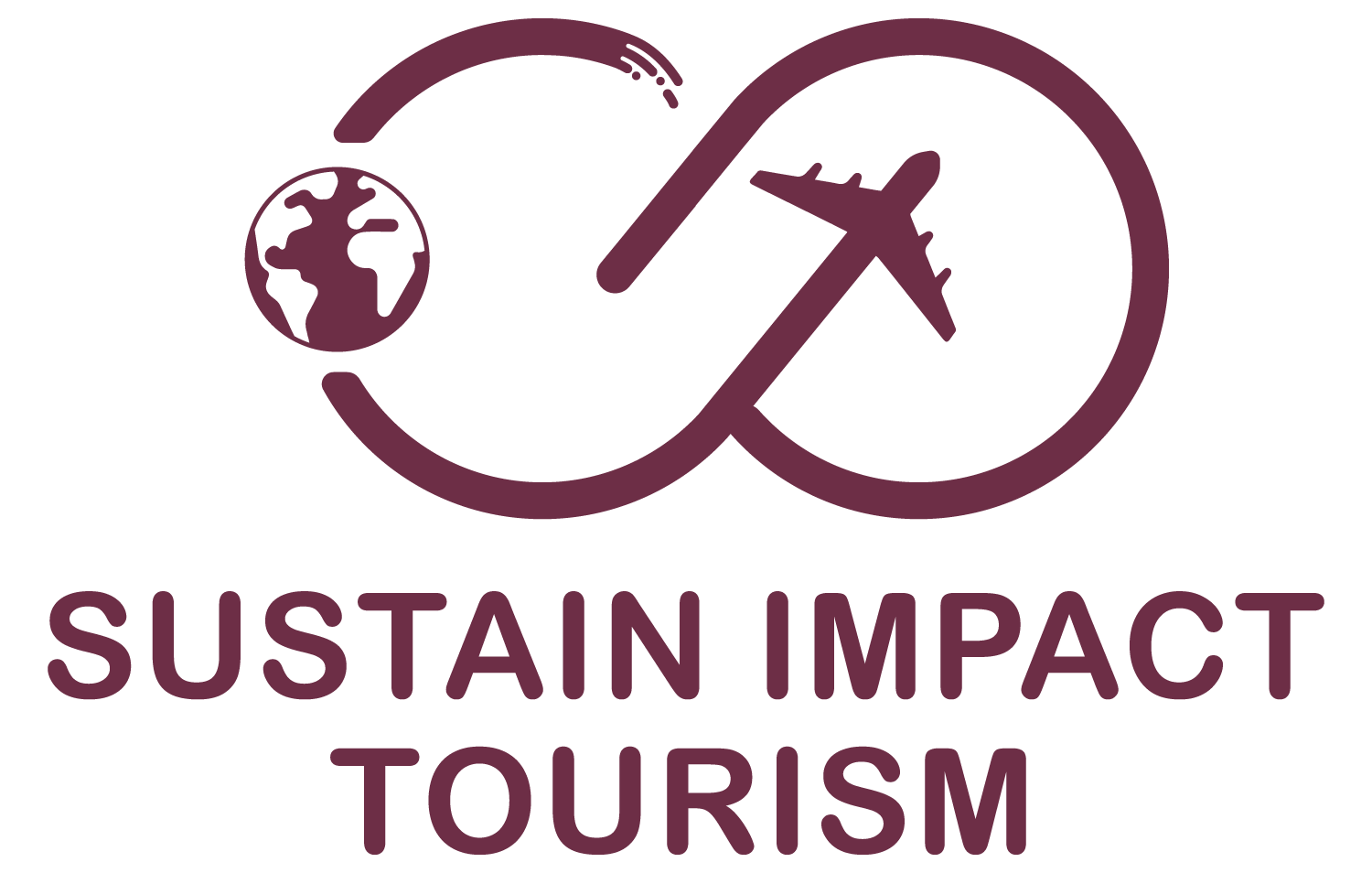Pride and Progress: The Impact of LGBTQ+ Tourism
LGBTQ+ tourism is a strong player in fostering sustainability as it pioneers human rights, questions status quo, and demands a creative change to our most urgent problems. The expansion of LGBTQ+ tourism (along with the black tourism and the Latino tourism and the travellers with disabilities tourism and all the other tourisms) is a proof that minorities are standing up for their place in the world and are making themselves heard to leave a lasting impact on the world. The influence of a queer solo traveler, a trans couple or lesbian moms with kids going on vacation goes far beyond the dazzling spectacles associated with Pride Month celebrations. It asserts their place in the world and screams for change. So how exactly does the tourism industry need to cater the needs of LGBTQ+ travellers and how does it foster sustainability?
Exploring the Growth of LGBT Tourism in Sustainable Travel
The tourism industry has seen a marked increase in LGBTQ+ tourism, an emerging sector that not only continues to expand but also forms a critical element of sustainable travel. Known for their appreciation for diversity and inclusivity, these travelers often search for destinations that resonate with their principles. In doing so, they foster a kind of tourism committed to respecting indigenous cultures, upholding equality and reinforcing the rights of locals.
Research suggests that LGBTQ+ travellers account for 16% of the total global tourism expenditure. Considering that on average, only about 8% of people worldwide identify as part of the LGBTQ+ community, their spending is significantly higher than their heterosexual counterparts. This allows LGBTQ+ travellers to vote with their money. A sizeable segment within the community shows preference toward lodging and activities characterized by minimal ecological footprints alongside equitable employment practices and positive impact on the local communities - a testament to their dedication towards responsible travel habits. Indeed, events synonymous with gay culture such as pride parades and specialized cruises were pioneers in embracing sustainability measures, further intertwining notions like pride month celebrations with eco-friendly initiatives.
Moreover, the existence and popularity of LGBTQ+ certifications (such as TAG Approved) and awards (eg. Gay Travel Awards) serve dual functions: applauding inclusive venues while promoting sustainable operations, an attractive package offered to discerning LGBTQ+ travellers. Destinations positioning themselves at this intersection (as havens both pro-LGBTQ+ tourism and mindful environmental stewards) are well suited to benefit from serving this valuable market segments. Furthermore, data unveil how frequently members of this demographic embark on journeys compared to other groups (over 60% LGBTQ+ travellers go on two or more trips per year), with many undertaking several voyages annually, which enhances its role in championing trends attributed especially associated social sustainability linked leisure sectors.
How LGBTQ+ Contributes to Social Sustainability
Sustainable tourism has three aspects: economic, environmental, and socio-cultural. The socio-cultural aspect (also referred to as social sustainability) advocates for equitable societies where every individual, regardless of their gender identity, sexual orientation, or cultural background, has unfettered access to opportunities. Areas renowned for their open-mindedness towards the LGBTQ+ community often report heightened levels of tolerance and societal unity—a testament noted by an uptick in positive attitudes toward these communities. The ripple effects generated by LGBTQ+ tourism touch more than just hearts; they extend economic support to local businesses that champion openness and affirmation. As these establishments receive patronage from LGBTQ+ travellers—who actively seek out such allies—they set a progressive example that spurs other businesses towards adopting similar values. In turn, this momentum cultivates not only commercial success but also weaves threads of inclusion throughout the fabric of society at large. This phenomenon is particularly important in less inclusive societies where the inclusive local businesses might not have prospered as much without the support of travellers and where people have to be made uncomfortable, so that the status quo can change.
As a result, LGBTQ+ tourism influence is palpable beyond consumer choices—it acts as a sculptor reshaping policies and societal norms on its journey through each destination it touches. The mere presence and consequent visibility of LGBTQ+ tourists catalyses critical dialogues about rights to one’s own sexuality and identity within host regions. Such enlightened discourse can advance legislative reform while simultaneously shifting public sentiment.
Within the realm of social sustainability, LGBTQ+ travel also promotes cultural exchange and understanding. LGBTQ+ travelers are generally known to engage more deeply with local culture and customs, seeking authentic experiences rather than surface-level tourism. This deep engagement often leads to a mutual exchange of ideas and greater understanding between diverse groups of people, which is a cornerstone of social sustainability. The impact is reflected in the increased visibility of LGBTQ+ cultures in mainstream tourism, further promoting an atmosphere of respect and learning.
Pride Month Celebrations Fueling Sustainable Tourism
During the month of June, destinations around the world host a variety of events that not only celebrate the LGBTQ+ community but also promote sustainability. Pride parades, for instance, have evolved to incorporate sustainable practices, such as using biodegradable materials for decorations and minimizing waste. These events attract millions of visitors annually, many of whom are committed to supporting eco-friendly and socially responsible tourism.
Celebrated destinations bring together locals and travellers (of all sexualities) during the Pride Month. Iconic metropolises like San Francisco, New York, and Amsterdam have conscientiously included sustainability initiatives into the celebrations. Efforts include advocating mass transit options, harnessing renewable energy to satisfy event power demands, and nudge local businesses to embrace sustainability in their operations. Every detail inspires conversations surrounding sustainability within the LGBTQ+ community. It’s more than just celebration of our freedom with a long list of educational forums, sport activities, exhibitions, creative workshop for kids…
As a robust economic catalyst, LGBTQ+ tourism injects substantial financial rewards into the destinations they visit. Their expenditures (higher than their heterosexual counterparts) permeate multiple sectors, such as accommodation services, gastronomy, artesanal associations, and recreational venues, and this infusion of spending triggers a ripple effect that can be quite profound: it stimulates job growth and enhances revenues for local enterprises alongside increasing governmental tax income.
By giving preference to businesses that are diverse and sustainable, LGBTQ+ travellers truly vote with their money. Their quest for sustainable accommodations and amenities already pushes the market to respond with the emergence of more and more responsible businesses that are going well since day 1.
Best Practices for Promoting LGBTQ+ Tourism
Organizations and venues keen on nurturing LGBTQ+ travel within the framework of social sustainability are wise to adopt a series of best practices. Initiatives such as acquiring certifications that honor both inclusivity for LGBTQ+ individuals and sustainable business methods allow these entities to demonstrate their dedication to upholding these core principles visibly. Marketing strategies should highlight distinct eco-friendly attributes and policies, resonating with the ecological consciousness ingrained in socially responsible LGBTQ+ tourists.
Invaluable too is forging bonds with local LGBTQ+ populations when advancing sustainable travel initiatives. Engaging community groups provides invaluable insights into what resonates with gay travelers, which paves the way for tourism ventures that not only flourish economically but also contribute widely across communities. Such synergies can give rise to celebratory manifestations—think green-minded Pride festivities or tours steeped in LGBTQ+ history—that champion diversity hand-in-hand with environmental stewardship.
Fostering awareness among staff about vital topics affecting LGBTQ+ travellers is another essential strategy. Simultaneously, equipping teams with knowledge on sustainable tourism fortifies their capability to participate actively in making this world a better place for all its citizens. Critical too is the persistent refinement process applied by businesses toward their protocols aimed at preserving our planet's resources. This includes reducing energy consumption patterns, waste disposal procedures, and supply chain greening efforts might be included here. Adopting such a cyclical methodology towards enhancement guarantees adherence not just to cutting-edge eco-friendly benchmarks but also alignment with shifting anticipations held by members of the LGBTQ+ travellers who increasingly spearhead progress.
The Future of LGBTQ+ Tourism within the Sustainable Travel Industry
The evolution of LGBTQ+ tourism is deeply intertwined with the larger narrative of sustainable travel, shaping a collective vision where inclusivity and environmental responsibility go hand in hand. Amidst growing consciousness around both environmental and societal challenges, it is anticipated that options for eco-friendly journeys will exponentially increase in popularity with LGBTQ+ travellers as early adopters. The considerable economic power and frequent travel habits have already pushed businesses to create a niche to serve this community.
Anticipated technological breakthroughs are poised to significantly influence LGBTQ+ tourism. Emerging tools such as immersive virtual reality encounters, alongside applications offering insights into the destinations will make it possible for travellers to make more informed choices and to get better educated about the destinations considered prior to the purchase of their next vacations. More specifically, social media's deep impact on guiding the future directions for travel trends can make or break destinations, particularly in relation to the LGBTQ+ community.
In conclusion, the intersection at which LGBTQ+ tourism meets with sustainable travel initiatives is a testament to the sector's commitment to inclusivity and its role in advancing social sustainability. Travellers tend to make deliberate decisions that coincide with their values which in the case of LGBTQ+ travellers have been strongly skewed towards sustainability. With the economic power and frequency of their travels, this creates a big push for companies all over the world to embrace sustainability.


